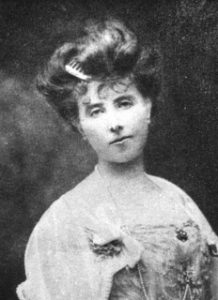 To Nancy Saunders Toy
To Nancy Saunders Toy
Hotel Bristol, Rome,
Rome. November 12, 1931.
The Bushes (of Columbia) have been here; also “Elizabeth” of the German Garden. The latter told me some interesting things about her late husband, my old friend Lord Russell. In the first place we both agreed that it was most satisfactory—much more so than anyone could have hoped—that he should have been rehabilitated and rewarded at the end with a place in the government: you know, I suppose, that he was successively under secretary for Transport and for India in the late Labour government. But he and “Elizabeth” had had the most bitter quarrels and had long been separated. She says marriage is a horrid thing, and that nobody ought to be bound to anybody else. Have you read her last book, Father? It is another picture of the evils of domestic tyranny, although in this case neither of the two domestic tyrants pillaried is a husband. She has built herself a house, with a garden in which things at last are able to grow, on the hills behind Cannes: and one of her husband’s relations was coming to stay with her, and was being greeted with waving scarves and eager smiles at the garden gate, when the visitor’s long face and solemn air made the hostess ask what was the matter.
“Frank!” cried the new comer, with tragic brevity.
“What about him now?”
“Dead and cremated!”
And this was the way in which “Elizabeth” received the glad tidings that she was once more a widow. She says she was never happier in her life. She also told me that Bertie had presented himself at the House of Lords to take his seat, but had been rudely shown to the door: a brother must wait eleven months for the succession, in case his bereaved sister-in-law should have a posthumous male child. This law, with modern manners and morals, opens vistas of curious possible plots: I shouldn’t wonder if “Elizabeth” took advantage of one of them.
All this merriment may seem heartless at the death of a husband and an old friend: but “Elizabeth” and I are known to be heartless: at least, for my own part, I feel so much the continual death of everything and everybody, and have so learned to reconcile myself to it, that the final and official end loses must of its impressiveness. I have now lost almost everybody that has counted for much in my life.
From The Letters of George Santayana: Book Four, 1928-1932. Cambridge, MA: The MIT Press, 2003.
Location of manuscript: The Houghton Library, Harvard University, Cambridge MA.
